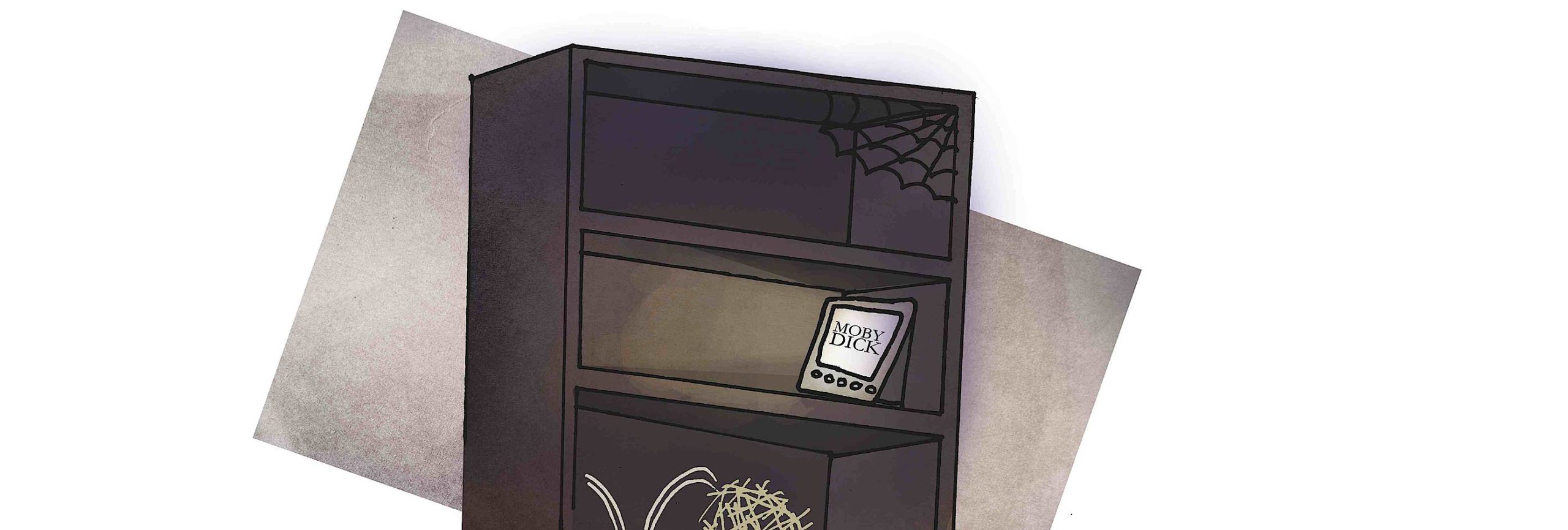Mark Dyer
Staff Writer
I am the last person people expect to get an eReader. Books are precious things to me. I am the only English major I know that does not make annotations in the cheap editions we use for class. No notes in the margin, no highlighting, no underlines. Nothing.

The very structure of eReaders seemed wrong to me from the beginning. Staring at one ever changing display, instead of moving in and around multiple pages was sacrilege. The book could not be explored, only viewed. eReaders would ruin reading. Or so I thought. In reality, eReaders are not so insidious.
I bought a Kobo Touch before the term started, intending to use it in school. After my first week using it I became an eBook convert.
eBooks are significantly cheaper than print books and many are available for free. The books for my courses would have cost well over $600. I have spent less than $100 on eBooks. I was even able to get all the books for one course for free—and legally at that.
As lovely as they are, books are still heavy. I know that this may seem like a minor quibble, but they do become a burden when you have got to lug around a bag full of them on a daily basis.
I have almost every book I need for the year on my eReader. It is incredibly liberating knowing that I will only ever need to carry something the size and weight of a paperback novel all year.
The eReader also makes sure that all your books are in one place. With my eReader I do not have to worry about turning up to class with the wrong texts. As long as I have it on me I know I have everything I need.
The anti-eReader camp would argue that it is more of a curse than a blessing. If you lose a book you only lose that book. When you lose an eReader you lose all of your books. This, however, is not the case.
Losing your eReader is like losing your iPod. The device may be gone, but all of the files on it are backed up on your computer or the cloud. With Kobo and Kindle your eBooks are available on multiple platforms. So even if the eReader is gone you can still access your books from your laptop, tablet, or smartphone. Of course, replacing your eReader is more expensive than replacing a book. But the convenience is certainly worth it.
Like MP3s, there is nothing precious about eBooks. They are just data-—widely available, highly disposable data. While eBooks may eclipse print books as the main medium for literature, print books will never disappear. In the same way that vinyl records have endured as a luxury item for the true audiophile and collector, beautifully designed hardcovers will. If anything, eBooks have benefited print books. They have made them even more precious.



